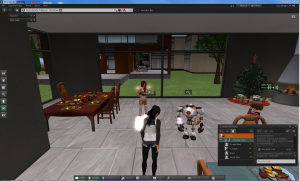Reverse-Engineering The Clio: theclio.com/web/
- Continue seeking sponsors
- Coming up with training videos, continuing responses to users, etc.
- Received grant funding
- Applied for a grant to seek funding to make improvements.
- Launched theclio.com/web/; now has thousands of submissions.
- Same PhP database. Had to have a prototype. It was important to be able to figure how systems could work with each other. Everything they create was in a draft mode. Institutions and classrooms. Three diff ways for entries to be created. Making sure double entries didn’t happen. Testing happened.
- Recruited friends and colleagues to test.
- Created paper versions of Clio. Testing to avoid miscommunications, etc.
- DIY approach. Came up with one semester project with students. Everybody picked five historic sites that they cared about.
- Contact Yelp and others about the project; wanted to include links to articles, books, etc.




